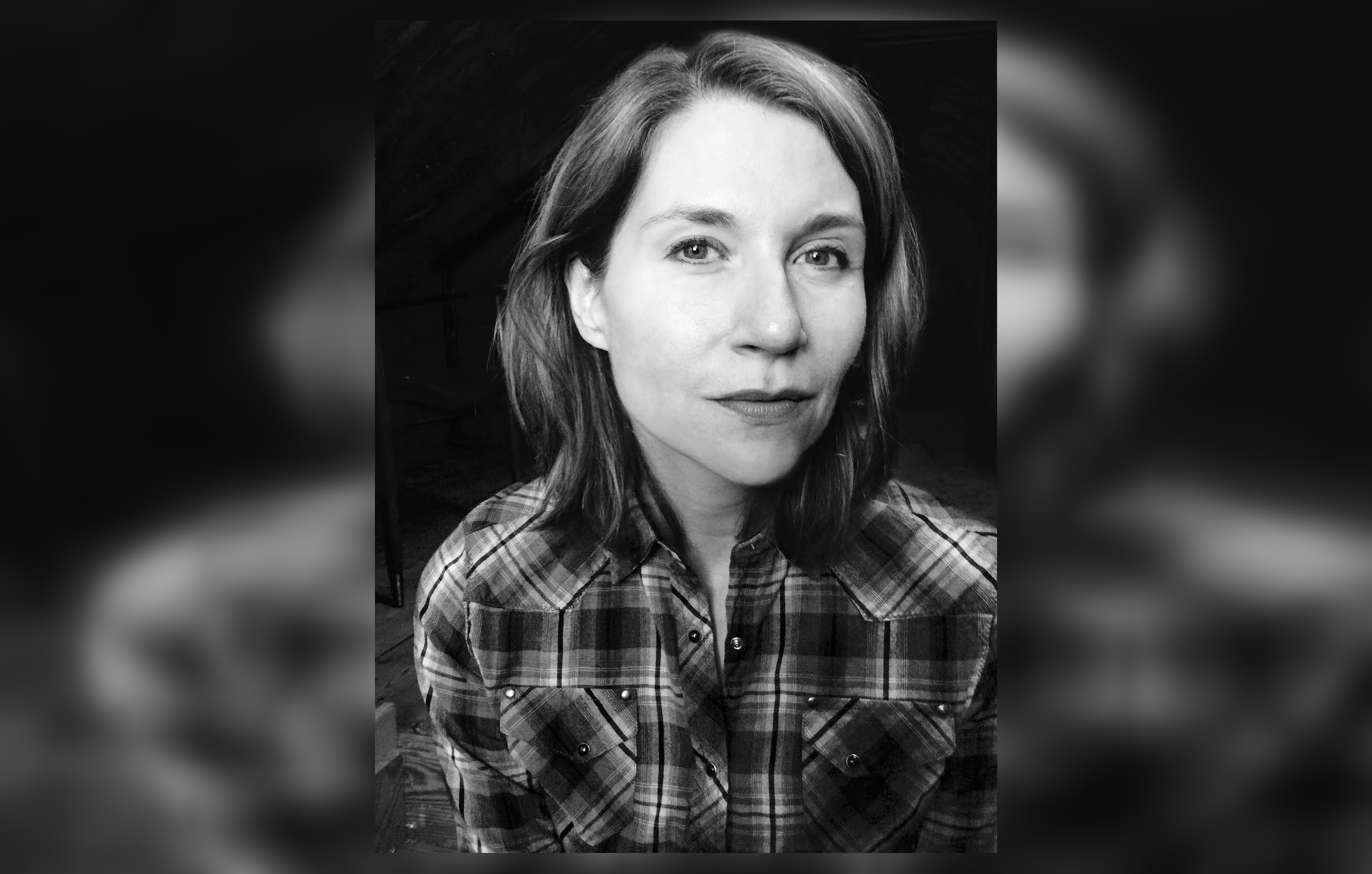By Heather Sager
About six years ago I phoned my friend Samantha, a childless woman who had recently experienced setbacks in her ongoing treatment for a mental disorder. Though I had moved several states away from our childhood home, where she still resided, I called equally when she was well and as her condition worsened. In the late days, she’d frequently mutter the word “motherfucker” beneath her breath, and in paranoid fashion I’d wonder whether it was me she was referring to, or whether this typically sweet and golden-hearted woman was addressing a figment both ghostly and familial—for her family had been dysfunctional, filled with alcoholism and woe, and many relatives had died prematurely from lives badly lived, a progression of ghosts.
During those disheartening talks, the television sounded in the background, and Samantha—my dear childhood friend—sometimes giggled, though this was not a true laugh, rather a disconnected expression that chilled my bones. Her distress loomed larger by the day.
On this cold November Wednesday—six years ago—I called when she was in the psychiatric hospital, in the closed ward. For one reason or another, the staff at this provincial hospital allowed phone-calls through to her, though actual visits were of course strictly limited. Her husband she had sent away, with tears of anguish on his part—to this day I envision him sitting in his parked car in the hospital lot, alone, his exhausted head resting on the wheel. He told me of his desolate state—wanting to see a wife he did not recognize and who, owing to disease, did not recognize him, had even seemed exalted, and self-aggrandized, in a bizarrely exhibited hatred for him. Unconsoled, he had rubbed his eyelids until they bled, and the skin flaked away.
That evening he called me on his cellular, telling me of Samantha’s weakened and impaired status, and, though he made a request to the contrary, I called Samantha, ringing her room after dinner and finding myself again surprised the hospital allowed callers to disturb her.
The cold frequencies of the phone system rang out as if from across a great distance. The night wind was chilly where I sat on my front porch, clutching the cordless. I briefly considered hanging up—the hospital phone wouldn’t have caller ID, so she’d never perceive it as a slight—but then resolved to talk, out of some dread combination of wanting to comfort her as well as to identify for myself what diabolical progression of mental events held her in thrall. Samantha soon picked up—somehow I couldn’t believe she did, yet it was happening, she answered—and greeted me with her signature warm voice, a voice that sounded familiar, almost too much so—as if it were put on like a mask, because much pain had splintered the real voice away from her.
We dispensed cordialities, discussing the flowers her husband sent after she refused him, flowers that remained—she had not rejected them from where they had been placed, in clear cold vases near the radiator. The doctor brought her medication tray. Samantha set the phone aside and for several minutes I simply waited, believing I had been forgotten. But she did pick up again, only her voice’s regular warmth disappeared and her tone flattened. “The doctor is down the hall now. He’s out of the way,” she whispered. It was as if she really meant: It is safe to talk now; at last, I can really clear my mind. Before, I had only been speaking in a prescribed way, because they—the doctors—were listening, or half-listening. But now that they have given me their medication and I acted calmly, they don’t give a damn about me.
At least she wanted to talk—it seemed a sign of improving health, and so I set aside my doubts about the quality of the hospital. I asked what she had been doing. She told me about a journal she was keeping. In doing so, her speech became elevated—in fact, she sounded almost well. She told me she kept the journal by her bedside; she extracted it as we spoke. The striking coincidence is that I had never told Samantha about my own desire to be a writer, but she confessed she had been doing some writing of her own, before the journal even, work which she was pleased to be continuing in the hospital, though admittedly this journal, and writing exercises to go with it, had been given to her here. I repressed my desire to speak, and simply listened. She was writing a fable—an original story.
As her description progressed, she sounded energized and joyous. My heart raced with elation. I had feared Samantha, who was warm and intelligent, occupied by two jobs and work at an animal shelter, did not allow herself the benefits of more reflective hours. But as she spoke, from across great, abyssal distances, I could see that had not been the case.
Her tale concerned a teenage girl lost in a gloomy climate. This girl struggled through the crumbling street-blocks of an abandoned night-time city, and eventually met the roaming ghost of her dead mother—with pause, I noted the name given this ghost-mother, which matched Samantha’s recently deceased grandmother.
Tearful and joyous in their reunion, the girl and her mother spread wings and flew north, escaping modern desolation. Their direction was a natural utopia free of strife and sorrow. To reach this world, populated only with the most serene and humane of citizens, they had to sink through the depths of a crisp mountain lake and in so doing, emerge, walking, onto an island that lay on the other side.
In discomfort I pressed the receiver to my chin.
She told another story, filled with illogical jumps and strange design. I listened intently, my muscles clenched. I was not exciting, not adventurous, and sensed that perhaps this moment with Samantha was an experience I was meant to record, a single event of the kind I always hoped would arise to cut through the meaninglessness of my life, to allow me to have something to say and thus distinguish myself—and give shape to my life. But the moment was moving inexorably by and I did not know what to contribute to it.
Before hanging up we briefly discussed religion; I was, and am, agnostic, she a believer. Samantha grew suddenly vehement, and I quickly changed the subject. As I was about to say my goodbye, then, a wave of fear clamped my heart.
“Do the doctors on staff review your journal?” I burst out.
“Yes, every night,” she replied calmly.
I tried to assure myself this was in fact the case.
A week later, she was released and sent home. I did not call her, though I talked to her husband once—briefly. I worried about the story of the mountain waters. I felt compelled to tell him what I had heard, but guilt and shame overwhelmed me and I remained silent. I woke up most nights, sweating.
I soon dreamt about walking in the street naked, letting strangers ogle my body. I now knew I wasn’t supposed to call Samantha, when the lid was open and off her mind, when I could view everything she, due to life’s conventions, had been forced to hide. In the end, my life was still just as paltry; I sensed I was no more real than one of Samantha’s figments.
My worries slowly ebbed away. I told myself there was nothing I could do. My friend’s well-being and happiness was in the hands of professionals—I really believed this, despite the occasional mix-ups in medication cocktails that reportedly occurred. I slowly moved on, and hardly ever called.
A year after the hospitalization, Samantha drowned, alone, in Midlothian reservoir—just outside our hometown.
A fiction writer and poet, Heather Sager has contributed to journals such as Naugatuck River Review, Fourth & Sycamore, Bear Review, and Untoward, among others. She lives in northern Illinois




